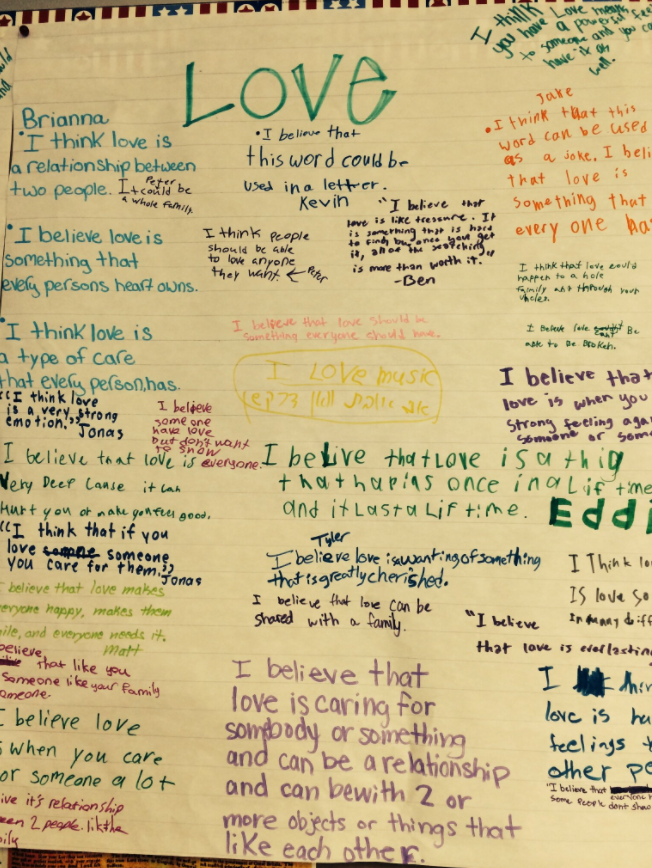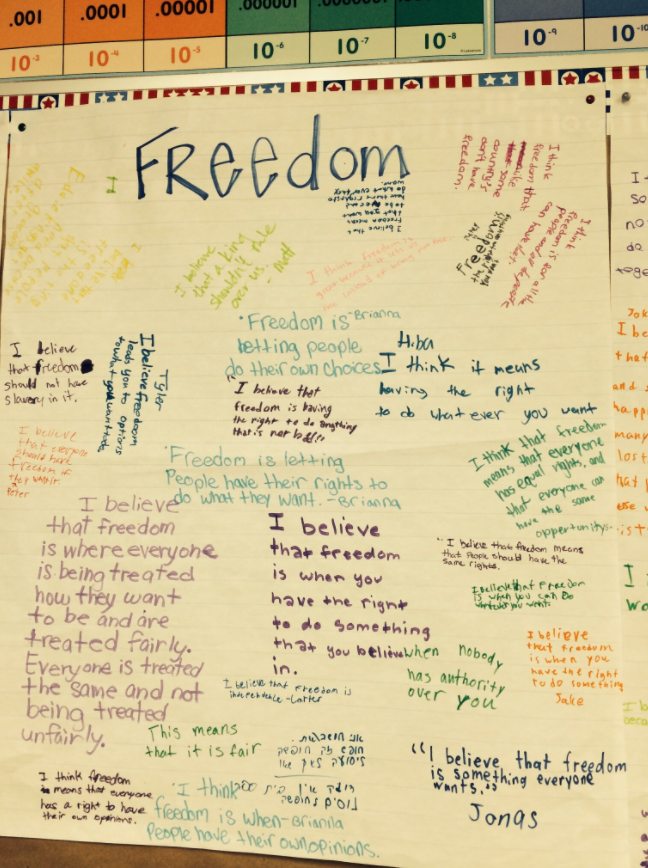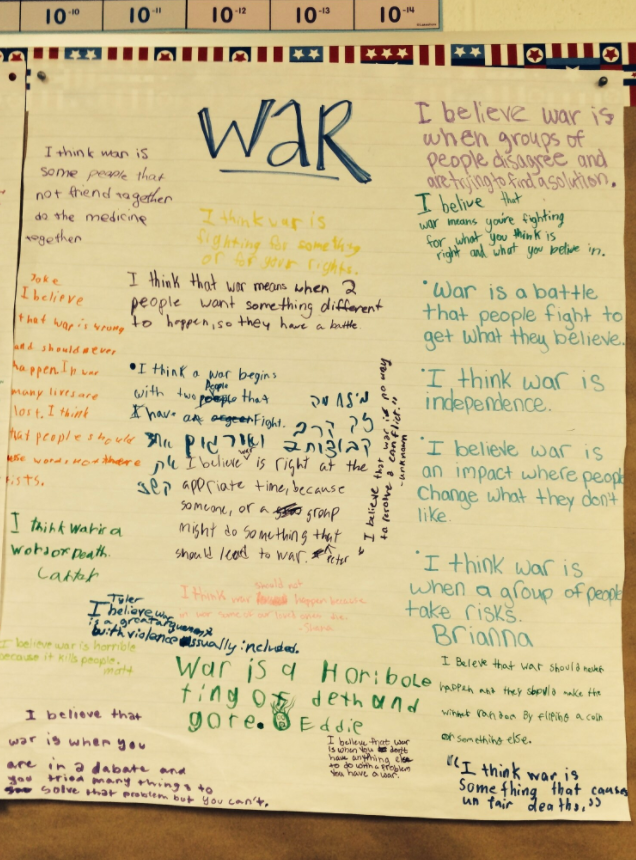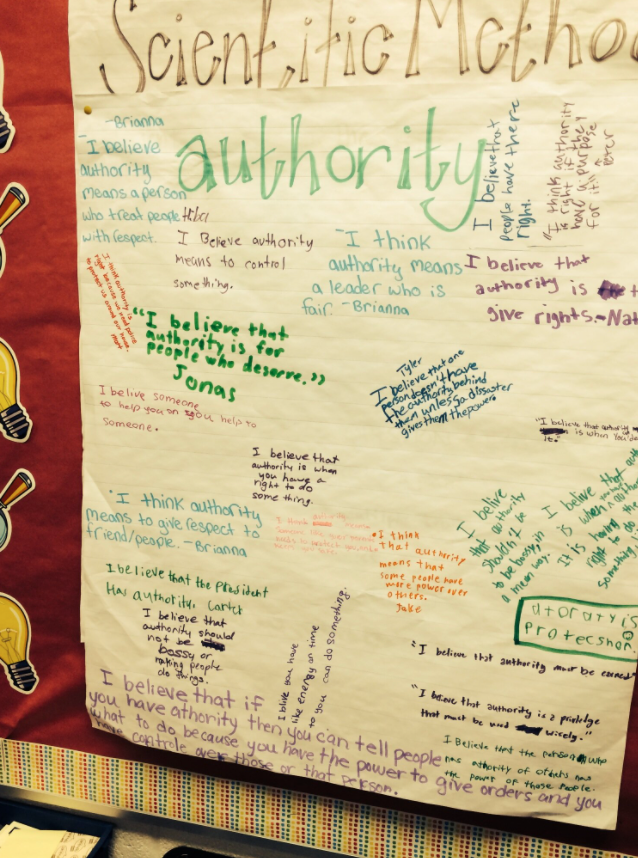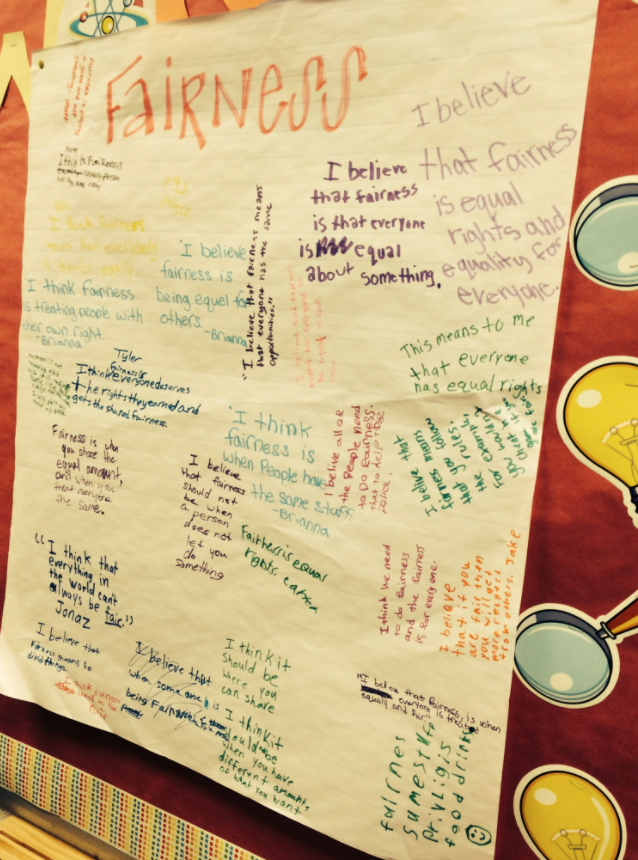Teaching Kids to "Believe" in Something
If I ever teach a college class, the first thing I will tell future teachers is that, as adults, we constantly underestimate the cognitive power and the moral compasses of children. Yes, children make loads of mistakes and misjudge situation after situation, but it never has to do with their ability to determine the difference between right and wrong; rather, it has to do with their impulsivity and their navigation out of an egocentric phase--one where it is difficult to take others' perspectives and develop empathy.Enter our theme for this year, which has been focused on defining and developing empathy. Today's activity was an extension of that and a way for me to begin to introduce the notion of differing values and ideals that can exist even within a fifth-grade classroom. The activity went as follows: I posted various pieces of chart paper around the room, each with different words written at the top.
Love War Freedom Authority Caring for Others Fairness Family Loyalty
Some of these choices were based off of the 6 foundational morals (Haidt), while some of them were topics I knew we would debate throughout our study of the Revolutionary War as well as the study of our own values and the values of others. I began the activity with apprehension, as I was unsure that the kids would be able to handle such heavy ideas and broad topics, but I decided to proceed, as there are very few things I will not try at least once in a classroom. In order to provide a bit of structure and help the kids focus their ideas, I gave the kids the following prompts:
(1) Think about what this word means to you.
(2) Think about what the word SHOULD be.
(3) Think about what the word SHOULD NOT be.
The students began apprehensively, as well, but after a few minutes of getting used to the activity, brilliant ideas and insightful opinions began pouring out. They discussed whether or not we "need" family in our lives--a debate in which two students discussed what "basic needs" truly were. Some also discussed a supposed "necessity" for war, in specific situations, while others mused over what it means to truly "love" another person or other people.Among some of my favorite quotes, were the following:
"I believe that a true family is a group of people who are loyal to each other, and love each other. They do not have to be related."
"I believe that love makes everyone happy, makes them smile, and everyone needs it."
"I believe that authority must be earned."
"I believe that love is like treasure. It is something that is hard to find, but once you get it, all of the searching is more than worth it."
"I think that freedom means everyone has a right to their own opinions."
"I think everything in the world can't always be fair."
"I believe love is wanting of something that is greatly cherished."
"I think authority is right if they have a purpose for it."
"I believe anyone can have loyalty to anything."
I never would have guessed that my kids thought this insightfully about these very basic, but very big ideas.
But I never would have known that they were capable of such broad thinking without giving them the chance to do so first. I never could have imagined the depth of their responses had I not encouraged risk-taking and given them the chance the be vulnerable with their peers.
Today, I remembered why I love this job so much.

